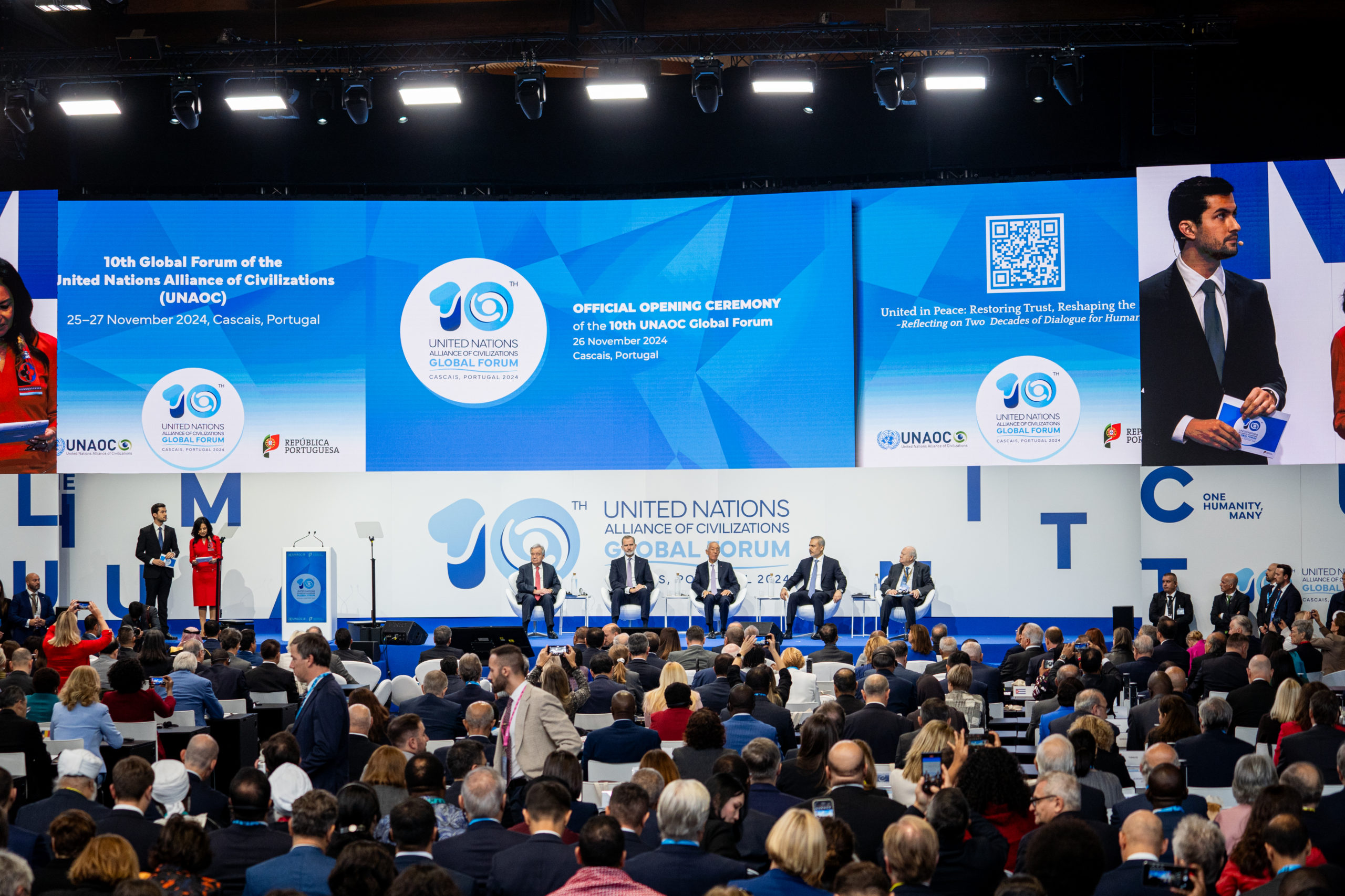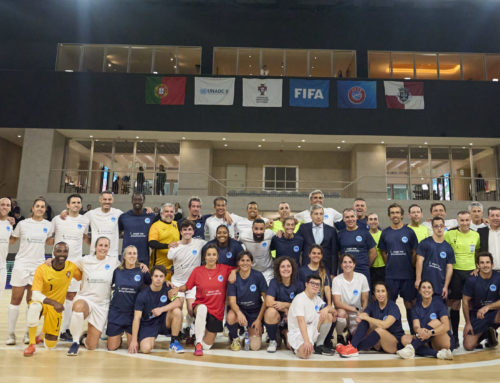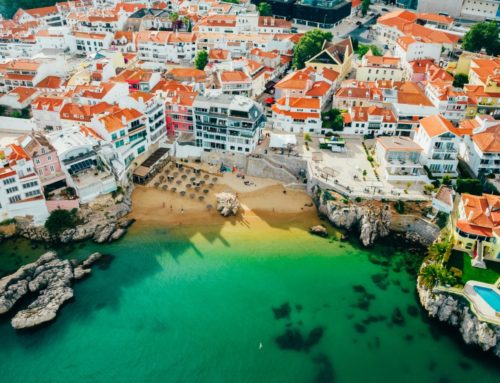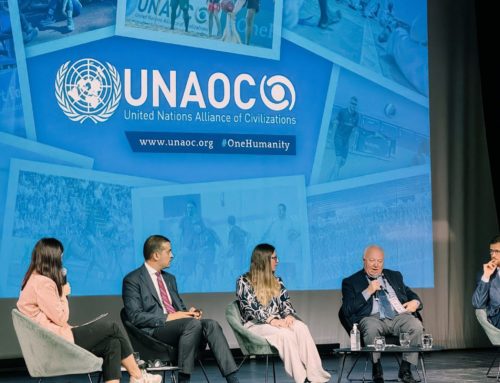United in Peace: Restoring Trust, Reshaping the Future
From November 25 to 27, the United Nations Alliance of Civilizations (UNAOC), in partnership with the Portuguese Government, organizinged the 10th UNAOC Global Forum. The event took place in Cascais, at the Estoril Conference Center, bringing together leaders, experts, and representatives from various communities.
The Forum addressed a wide range of important topics, including gender equality, social inclusion, the right to education, and the promotion of peace. During the sessions, participants had the opportunity to discuss strategies and share initiatives aimed at building fairer and more equitable societies.
There was an enriching lecture on the role of sports as a powerful tool for social inclusion: “Harnessing the Unifying Power of Sports to Promote Peace and Inclusivity: Sports Diplomacy as a Bridge-builder”. In this panel were big names in the community such as Mr. Pedro Dias (Secretary of State for Sports of Portugal); Mr. Taha Ayhan (President, Islamic Youth Cooperation Forum); Ms. Leila Marques (Vice-Chair, Portuguese Paralympic Committee); Mr.Emilio Gutiérrez (Academy Director of Atlético de Madrid); Ms. Carla Silva (Board Member of the Portuguese Institute of Sport and Youth- IPDJ); Ms. Fathiaya Nzhelayim Zakari (Advocacy and Engagement Officer of YEFL Ghana); Ms. Leila Benabdallah (ICESCO Youth Ambassador) and as the moderator Mr. Valerio de Divitiis (Programme Coordinator, United Nations Office of Counter-Terrorism-UNOCT) .
The event addressed how sports practice can serve as an effective means to integrate people with disabilities and those in vulnerable situations. Successful strategies and initiatives that demonstrate the potential of sports to promote self-esteem, health, and harmonious coexistence among different social groups was discussed, highlighting the importance of accessibility and respect for diversity in the sports environment.

Estoril Convention Centre
Cascais, Portugal
27 November 2024
The statement that “sports can change lives” highlights the transformative role that this area plays in society. During the discussion, it became clear that sports not only promote the acquisition of interpersonal skills but also significantly contribute to the development of self-confidence and other personal qualities. Even for those who do not consider themselves athletes, the values inherent in sports can be a powerful tool for promoting peace and social inclusion.
An inspiring example comes from Ghana, where sports played a crucial role in the reintegration of marginalized groups. Through games involving the participation of indigenous communities, it was possible to not only foster inclusion but also strengthen social bonds and promote mutual understanding. Furthermore, engaging in sports teaches valuable lessons to children, both in defeat and in victory, contributing to their development as more resilient and responsible adults.
It is equally important to recognize sports as a fundamental right, as everyone should have access to the infrastructure and resources necessary to participate in sporting activities, making this accessibility essential for individual and collective well-being.








